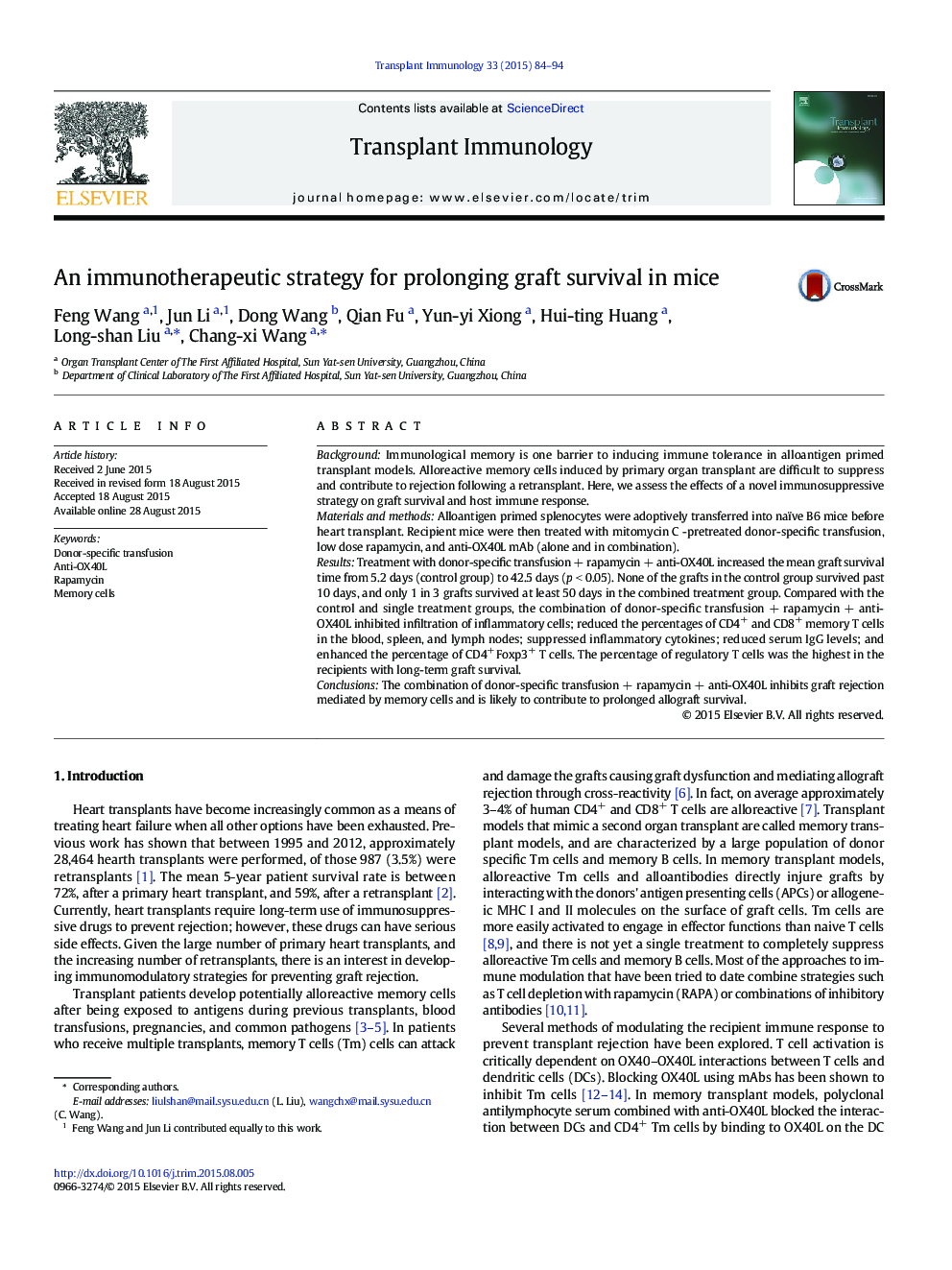| Article ID | Journal | Published Year | Pages | File Type |
|---|---|---|---|---|
| 3392024 | Transplant Immunology | 2015 | 11 Pages |
•The effect of an immunosuppressive strategy on graft survival was investigated.•The strategy included donor-specific transfusion, rapamycin, and anti-OX40L mAb.•The strategy significantly increased the graft survival time of recipient mice.•The strategy reduced inflammatory cytokines and serum IgG levels in recipient mice.
BackgroundImmunological memory is one barrier to inducing immune tolerance in alloantigen primed transplant models. Alloreactive memory cells induced by primary organ transplant are difficult to suppress and contribute to rejection following a retransplant. Here, we assess the effects of a novel immunosuppressive strategy on graft survival and host immune response.Materials and methodsAlloantigen primed splenocytes were adoptively transferred into naïve B6 mice before heart transplant. Recipient mice were then treated with mitomycin C -pretreated donor-specific transfusion, low dose rapamycin, and anti-OX40L mAb (alone and in combination).ResultsTreatment with donor-specific transfusion + rapamycin + anti-OX40L increased the mean graft survival time from 5.2 days (control group) to 42.5 days (p < 0.05). None of the grafts in the control group survived past 10 days, and only 1 in 3 grafts survived at least 50 days in the combined treatment group. Compared with the control and single treatment groups, the combination of donor-specific transfusion + rapamycin + anti-OX40L inhibited infiltration of inflammatory cells; reduced the percentages of CD4+ and CD8+ memory T cells in the blood, spleen, and lymph nodes; suppressed inflammatory cytokines; reduced serum IgG levels; and enhanced the percentage of CD4+ Foxp3+ T cells. The percentage of regulatory T cells was the highest in the recipients with long-term graft survival.ConclusionsThe combination of donor-specific transfusion + rapamycin + anti-OX40L inhibits graft rejection mediated by memory cells and is likely to contribute to prolonged allograft survival.
